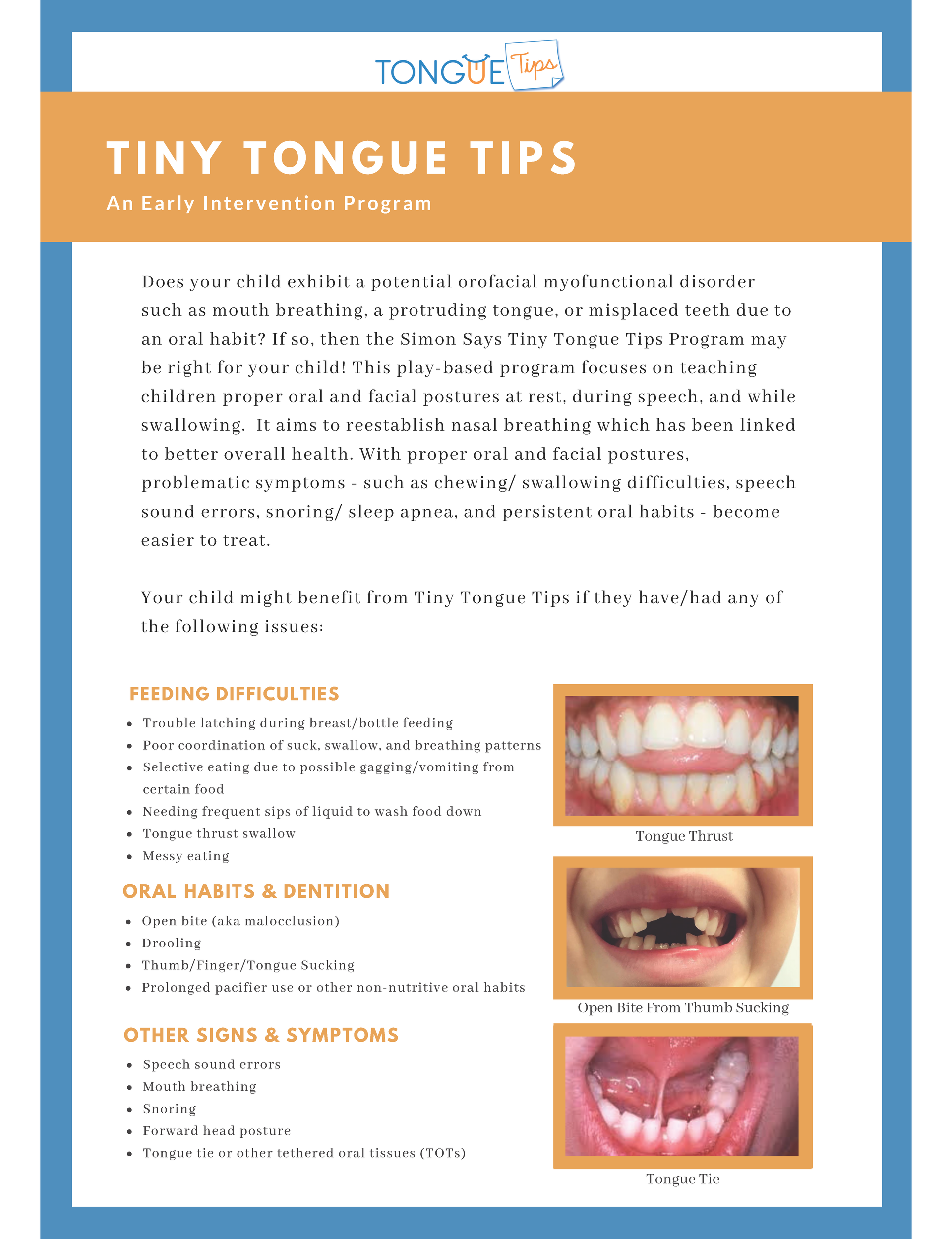Specialized Programs
THUMBS UP!
Thumb Sucking Elimination Program

Thumb or finger sucking is a common sight among babies and small children. Infants are born with a natural urge to suck their thumbs, which usually decreases after they reach the age of 6 months. Some children, however, continue to suck their thumbs or fingers to soothe themselves. Thumb sucking can quickly become a habit in children who do so when they feel impatient, scared, hungry, tired, or bored.
The Thumbs Up! Thumb Sucking Elimination Program uses the power of positive reinforcement as a motivator, allowing your child to take charge of breaking his or her own habit with guidance and support from both the therapist and parents. The program creates a sense of self-satisfaction that quickly and effectively replaces the child’s thumb or finger sucking desire.
Thumb Sucking Program: THUMBS UP! is an oral habit elimination program that incorporates behavioral modification and positive reinforcement to break the habit and reverse the negative effects of thumb/finger sucking (tongue/teeth positioning, swallowing problems, speech sound errors).
This fun 30 day program empowers a child and motivates them to accomplish their goal of eliminating, sucking with just a little hard work and a few rewards along the way this program has proven to be effective and the best part is there are no Harsh or Painful Appliances used.

Feeding/Swallowing Program
Our Feeding program has helped children improve their ability to eat. We will determine the cause of your child’s eating struggles. Whether they have low muscle tone in their jaw and tongue, sensory challenges, behavioral issues or medical issues, we can provide the personalized treatment they need.
Who would benefit from feeding therapy?
- Failure–to–thrive
- Feeding tube dependency
- Bottle or formula dependence
- Breast and/or bottle-feeding difficulties (including infants with tongue and/or lip ties)
- Difficulty transitioning to baby food, table food, or cup drinking
- Texture aversions (gagging on lumpy purees or certain table foods)
- Inability or refusal to increase textures
- Difficulty biting and chewing foods appropriately
- Poor weight gain
- Extremely limited food repertoire (accepts less than 30 foods consistently)
- Extreme food selectivity
- Rigid mealtime behaviors (accepts specific brands of food only, particular about presentation or order of foods)
- Significant behavior problems during mealtime (mealtime tantrums and excessive meal durations)
- Inability or refusal to self-feed
